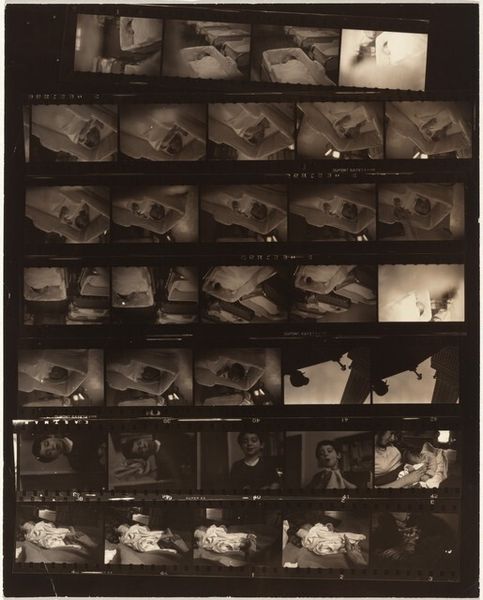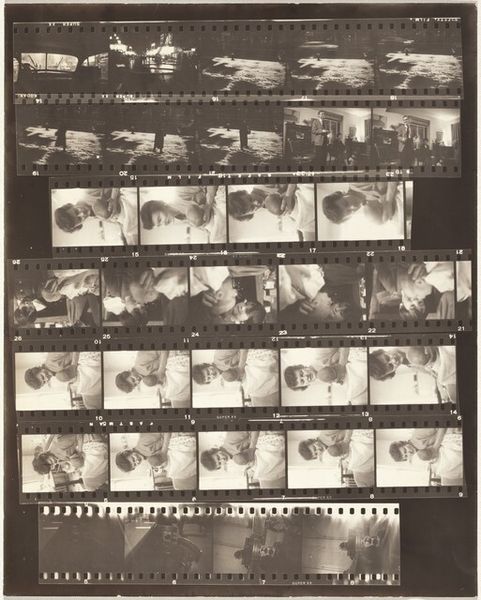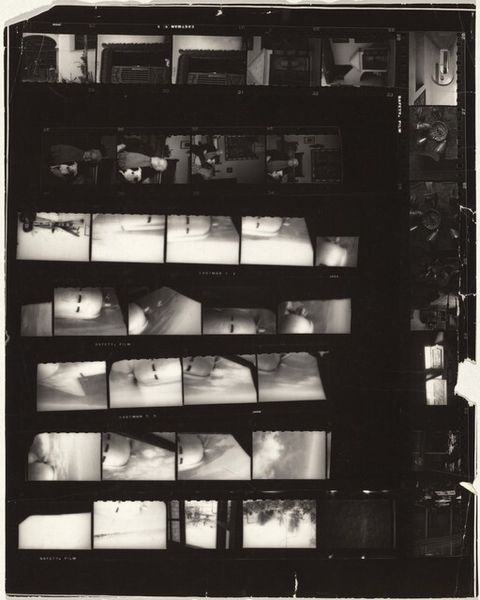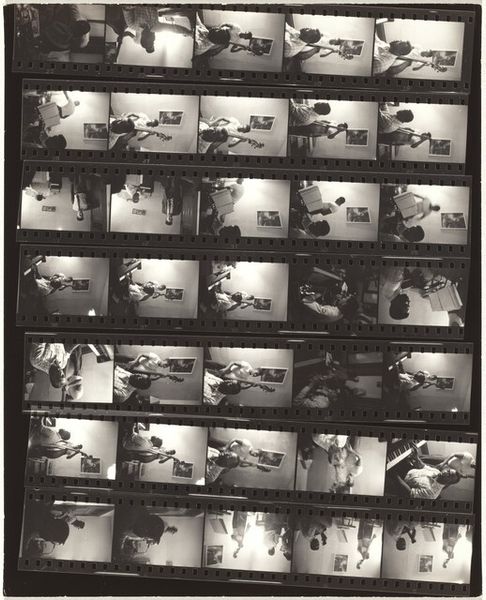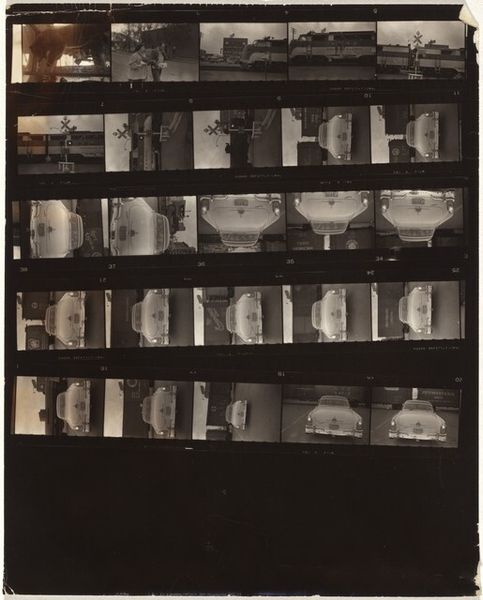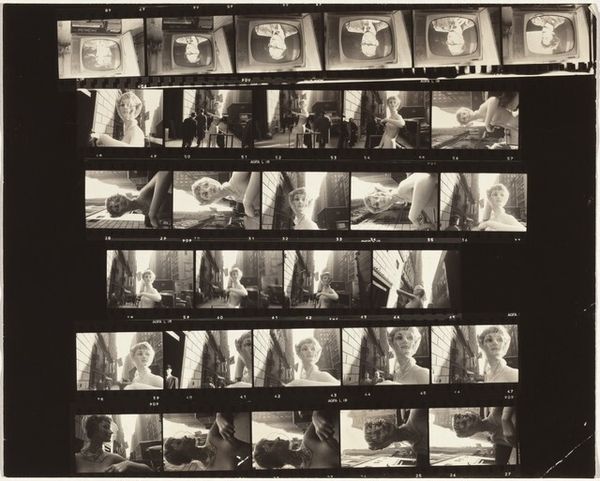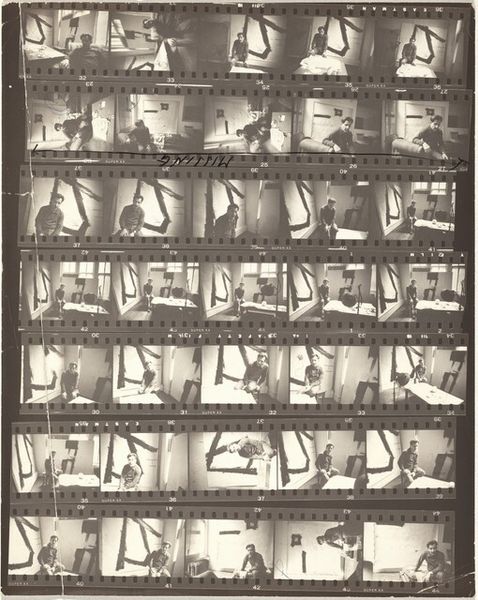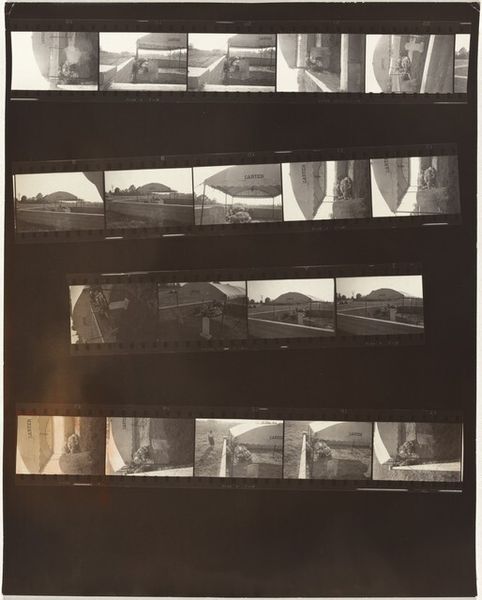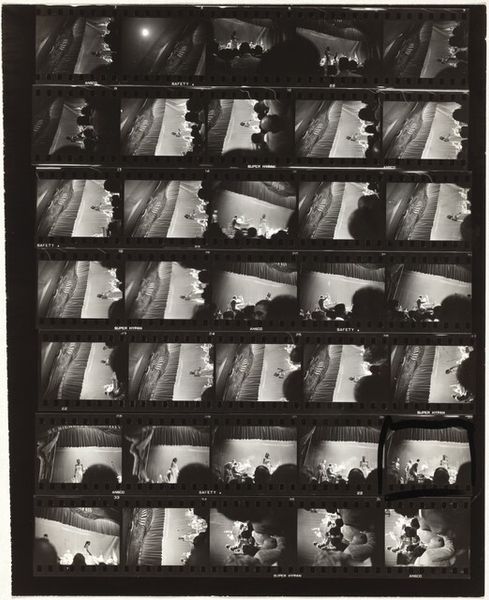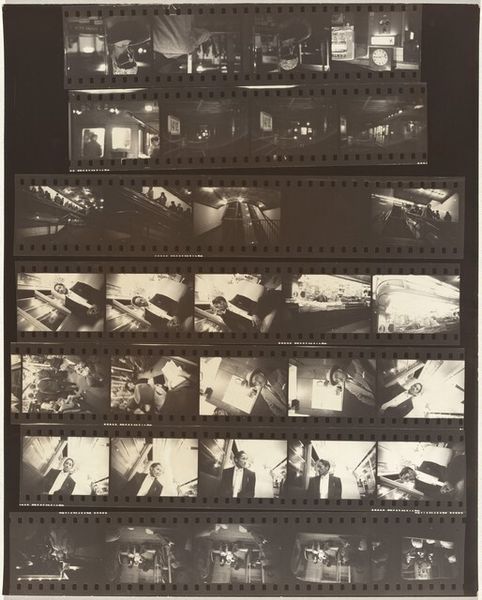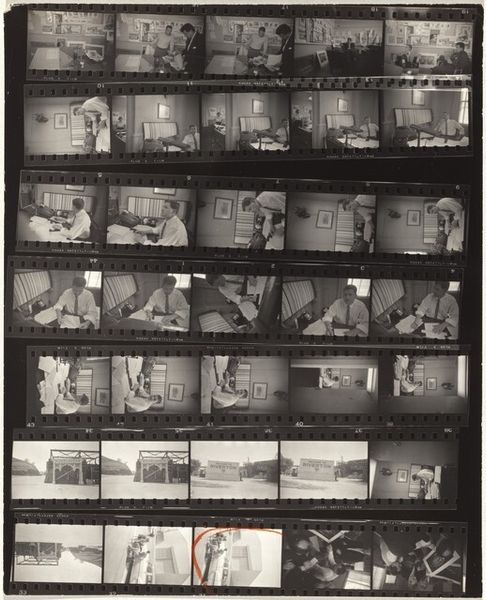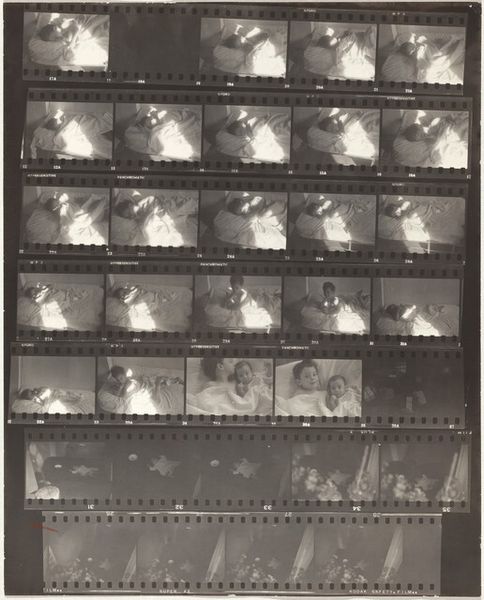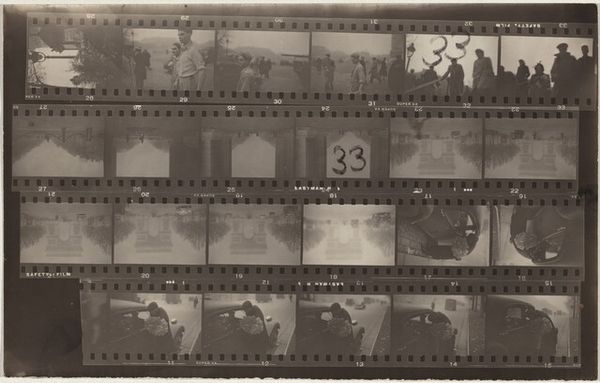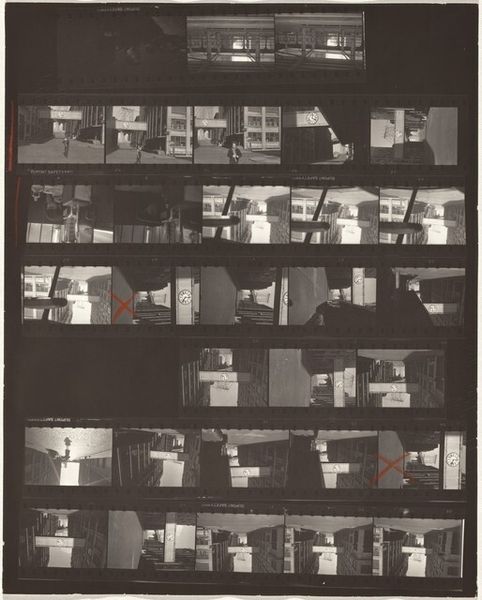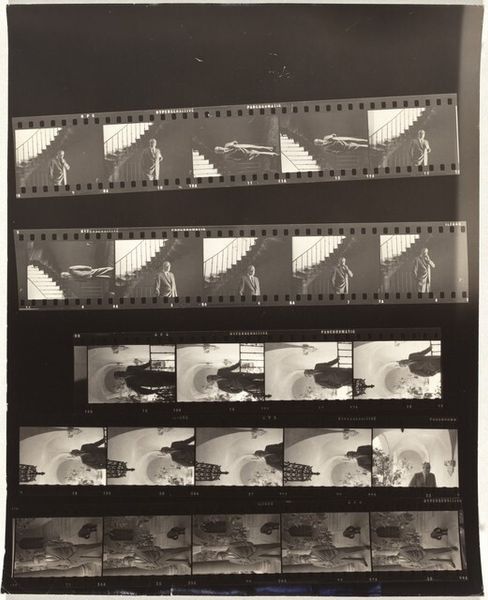
print, photography, gelatin-silver-print
#
narrative-art
# print
#
impressionism
#
figuration
#
archive photography
#
photography
#
gelatin-silver-print
#
monochrome photography
#
history-painting
#
realism
#
monochrome
Dimensions: image: 14.2 × 44.6 cm (5 9/16 × 17 9/16 in.) sheet: 48.5 × 61.3 cm (19 1/8 × 24 1/8 in.)
Copyright: National Gallery of Art: CC0 1.0
Eadweard Muybridge made this collotype, entitled ‘Plate Number 265. Getting out of bed’, in the late 19th century. Muybridge was one of many photographers experimenting with new technologies in the United States at the time. As photography became more common, people saw how it could be used in both science and art. His motion studies sought to capture and analyze movement, freezing time in ways that the human eye could not perceive. These images broke down actions into discrete phases, offering new insights into the mechanics of the body. Think of the late 1800s, an era marked by industrial progress. Scientific observation rapidly found its place within artistic expression. Images like these blurred the lines between the two fields. To understand this, we might look into the history of photography, the science of motion, and the cultural fascination with the human body. By considering the social and institutional context, we can better understand this artwork’s role in shaping our understanding of movement, science, and art itself.
Comments
No comments
Be the first to comment and join the conversation on the ultimate creative platform.
